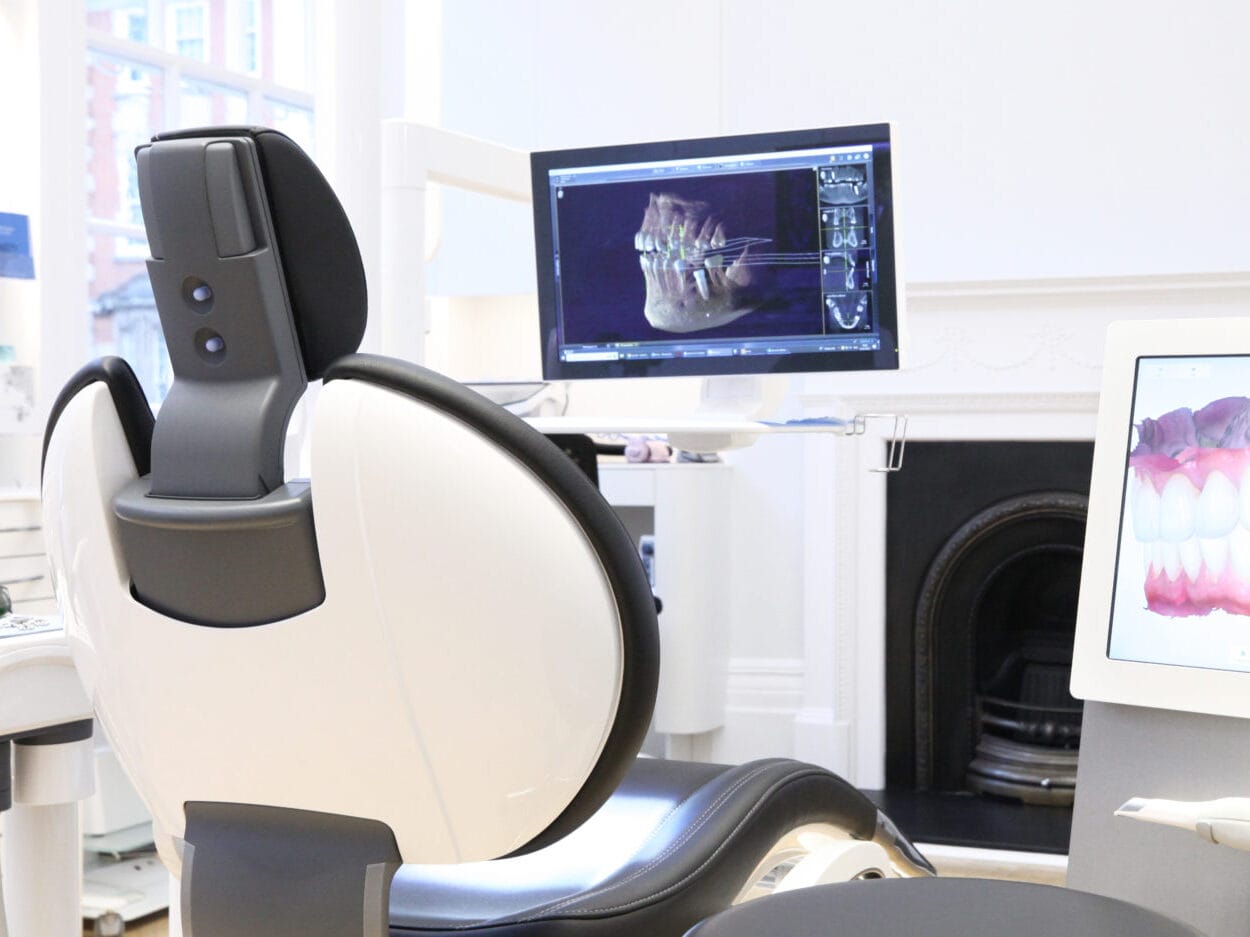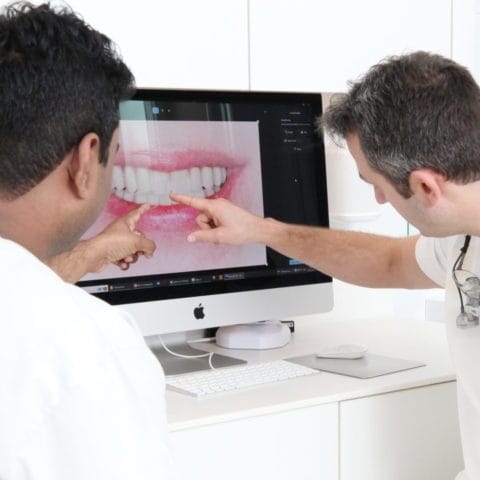Apicectomy in London
Apicectomy is a way of saving unhealthy teeth in cases where root canal re-treatment is unsuccessful. If you have undergone root canal, and potentially additional root canal re-treatment and yet inflammation has returned to the affected tooth you may be concerned about what happens next. Rest assured that our experienced dental professionals here at Wimpole Street Dental Clinic have a clear and confident clinical dental care resolution to safeguard your smile if this issue arises for you.

Treatment Duration
1+ hour

Price
From £700

Recovery Time
7+ days

On these occasions, an apicectomy (a minor dental surgery) can be performed if deemed the next necessary step in your optimum dental care and treatment.
The medical definition of an apicectomy (sometimes called ‘root end surgery’) is the surgical removal of an anatomical apex (the end of the root of the tooth). An apicectomy usually involves minor surgery if cysts or infection continue to cause problems after root canal treatment or re-treatment and if our dentists are not able to disinfect and apply a root canal filling to seal the root tip.
A flap of gum is lifted to expose the tip of the root whilst under local anaesthetic. The infected area (including bone and tissue) is then carefully removed and cleaned and the tip of the root is reduced in size. If possible, our dentist/endodontist may be able to apply a filling with biological cement to seal the end of the tip of the root.
Once the surgery is complete the gum is stitched back to seal it completely using dissolvable stitches.
Meet your award-winning Apicectomy dentist and team…
- We have over 75+ years of combined dentistry experience across our specialist team.
- 10,000+ treatments performed and counting.
- We are leaders in the dental industry – we regularly teach, lecture and publish our research work internationally.
Our Expertise
Whenever you need to take care of your smile – in an emergency, during routine care or when booking cosmetic dentistry – you naturally seek a qualified, skilled and experienced dental professional whom you can trust to deliver the premium dental treatment you expect at every appointment. We have extensive experience in endodontics (assessing dental pain and specialising in root canal treatment) and apical surgery with an in-house endodontist and oral surgeons available to consult. If we have undertaken your initial root canal treatment or root canal re-treatment, we will already have extensive knowledge of your oral health, and the original treatment plan and be best placed to perform your root treatment.
We have undertaken hundreds of apicectomies and surgical endodontic procedures with great success.
We offer a new standard in modern dentistry in our clinical methodology – leveraging the optimal combination of the finest handcraft, magnifying technology and the newest machinery to deliver excellence in both patient care and dental treatment success. Specifically, for an apicectomy, rest assured that we prioritise saving teeth as our optimum clinical outcome for our dental patients. We have a clear and confident step-by-step dental care resolution in place for this kind of treatment plan as it is required on a case-by-case basis as presented to us.

Helen Li
Wimpole Street Dental has the highest most ethical standard of work, personable approach, clear and safe procedures, top notch excellence and reliability in treatment provided with utmost professionalism from crème de la crème world class specialists all under one roof.
Who is suitable for an apicectomy?
After your initial consultation, our experienced dental team will be in the best position to determine whether you present as a suitable case for an apicectomy procedure as we seek to provide the highest quality care to look after your long-term oral health and teeth.
An apicectomy is usually considered the next necessary step if both the original root canal treatment and root canal re-treatment have not been fully successful. Patients who have had a root canal treatment and re-treatment fail, usually have an apicectomy recommended to them in order to try to reduce pain from root inflammation and to avoid an extraction. This continuation of discomfort and infection at the root can sometimes be caused not just by treatment failure but by other factors such as new tooth decay or damage/trauma to the canal area. However, the most common cause of a residual infection is the failure the clean and disinfect the tip of the root.
It is important to rectify the root canal treatment and continuous infection to avoid the infection from spreading further from the root to other areas of the mouth or the body and causing further complications.
If you’re still feeling pain and have an obvious inflammation or infection surrounding the root canal, our endodontist will examine the area and assess whether you’re suitable for an apicectomy as supposed to an extraction.
Take your first step with Wimpole Street Dental Clinic
Discover the path to a brighter smile with Wimpole Street Dental Clinic! Our team of skilled professionals utilizes advanced technology to provide personalised dental care in a comfortable setting.
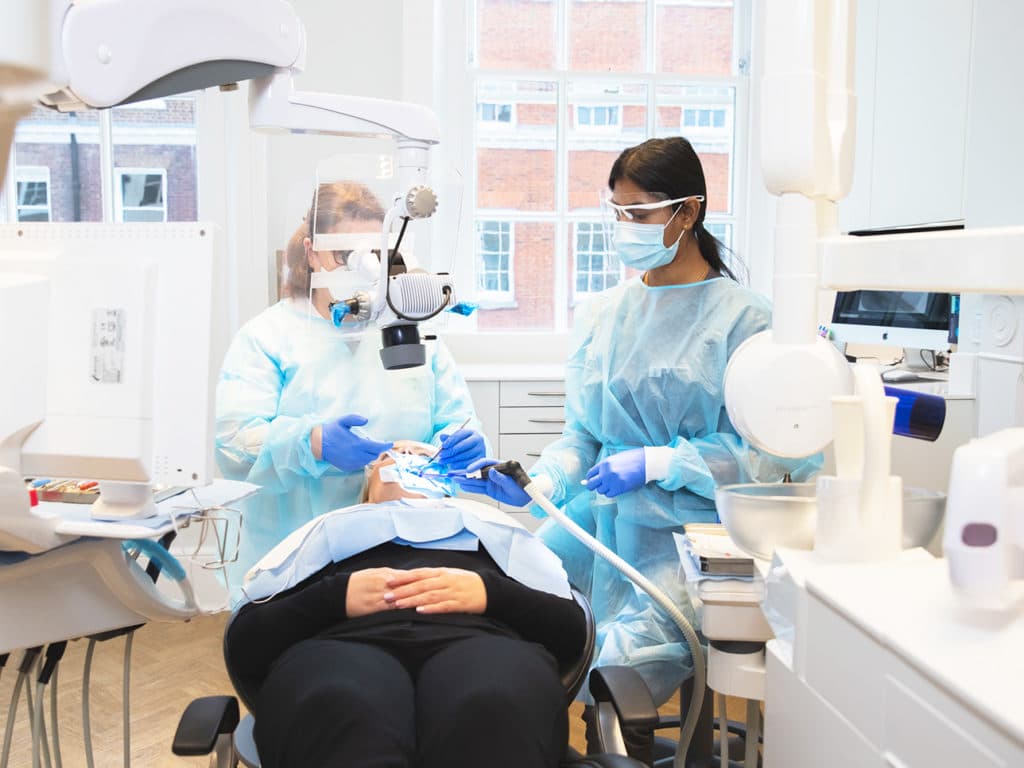
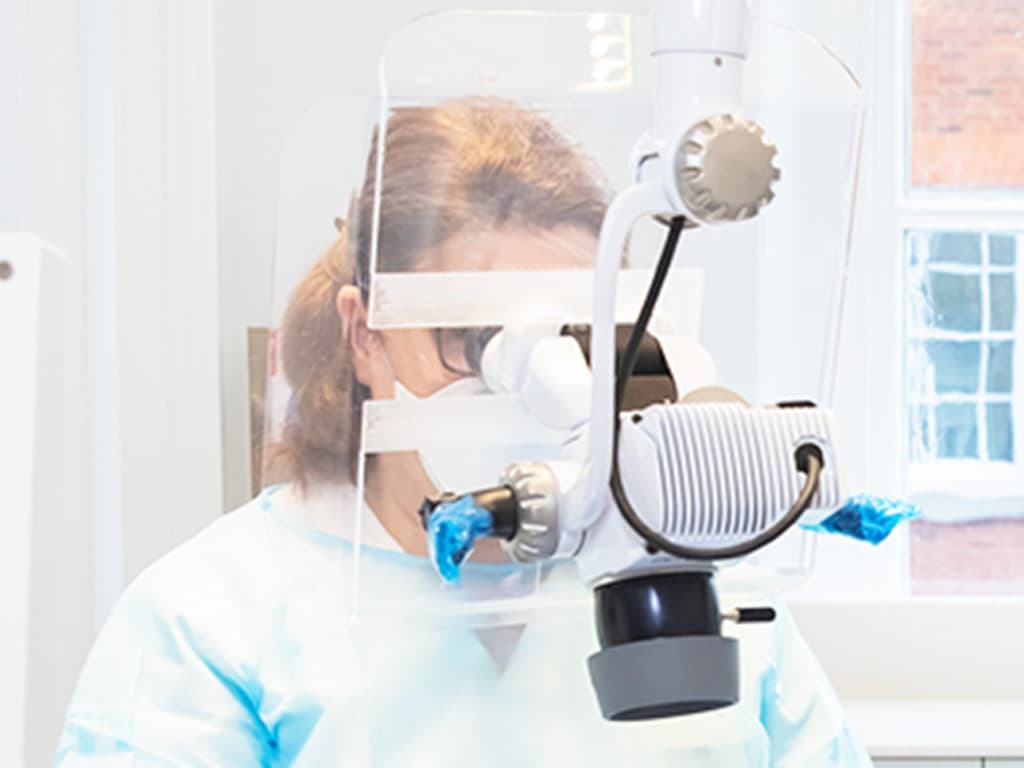
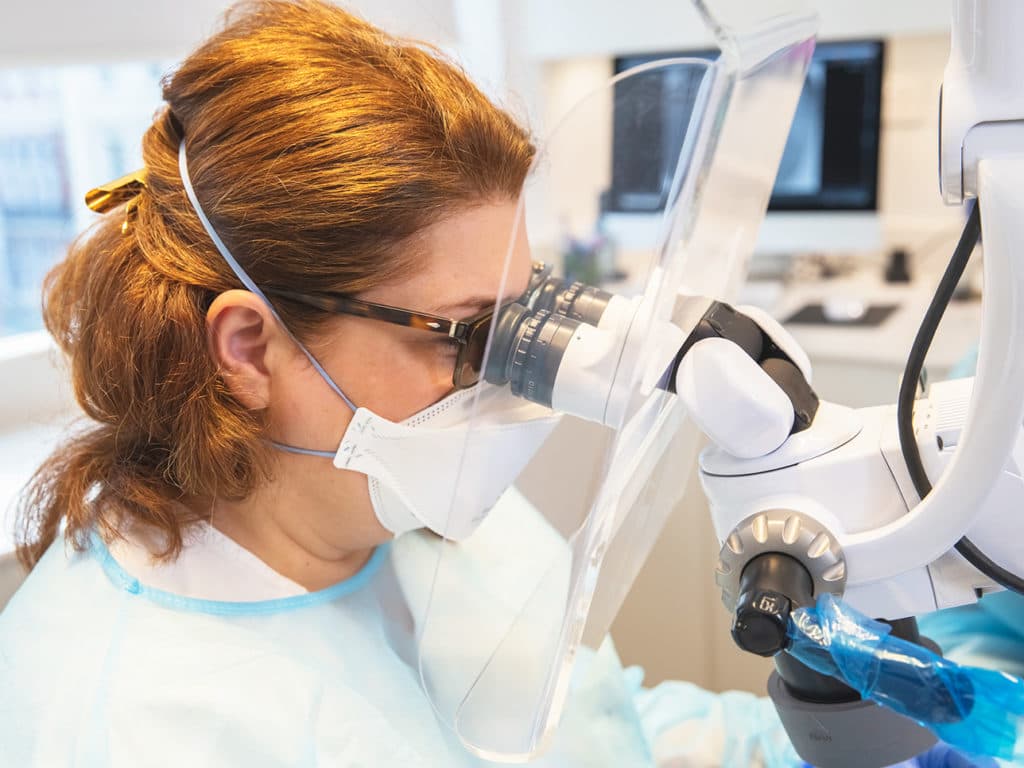
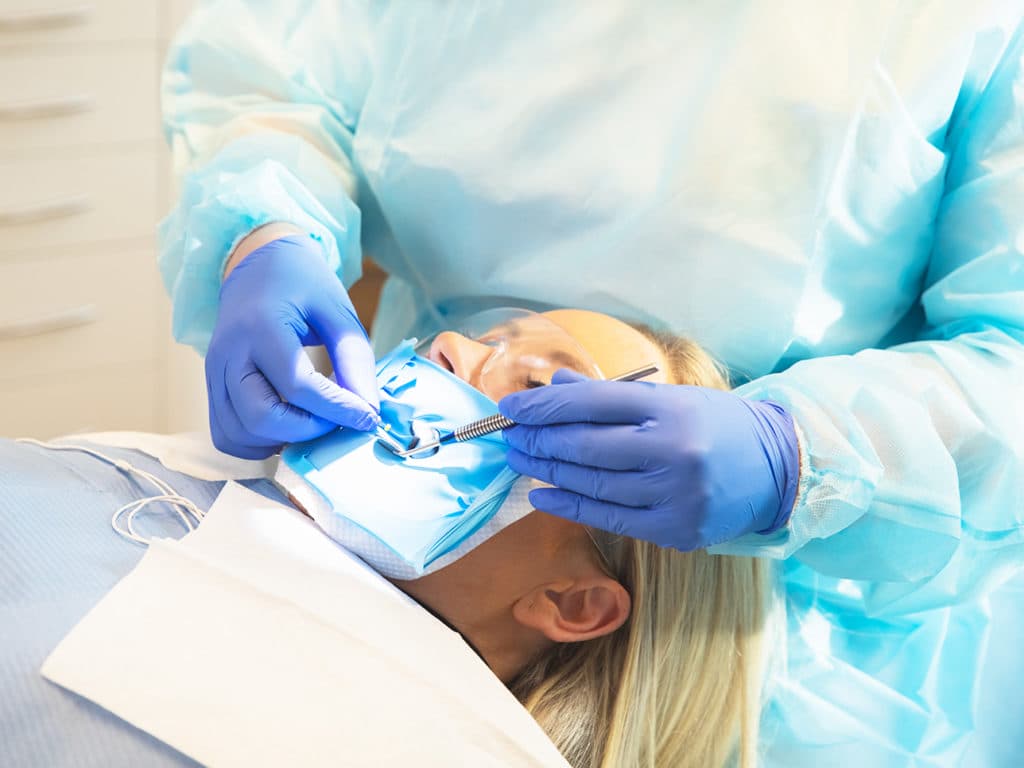
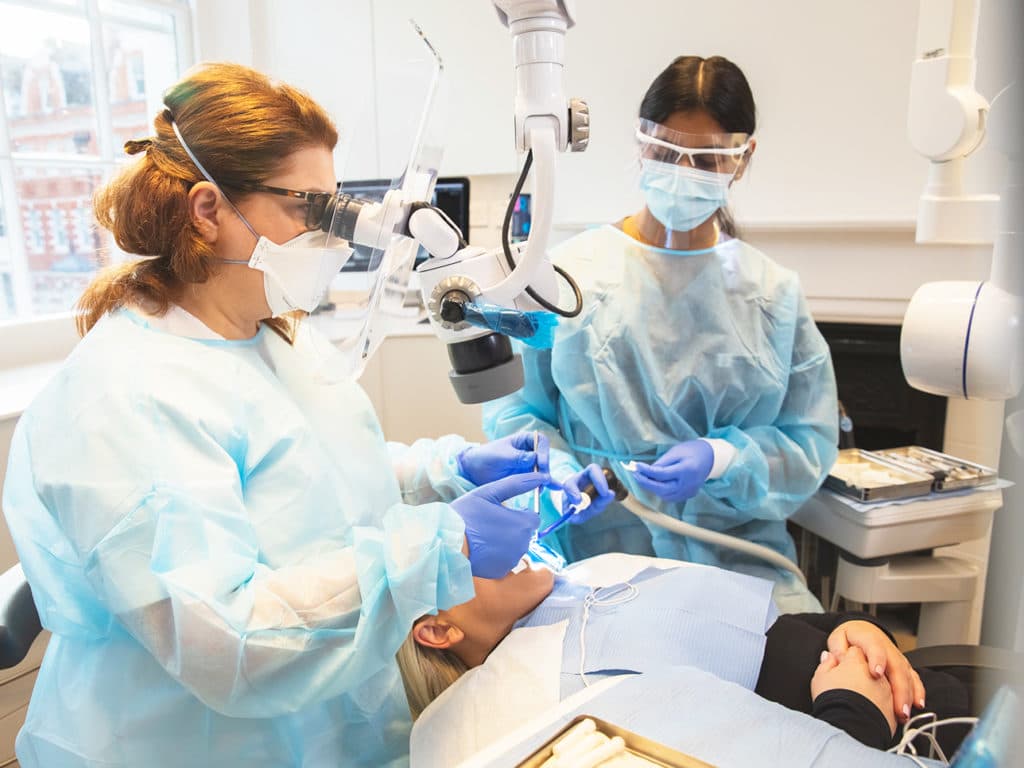



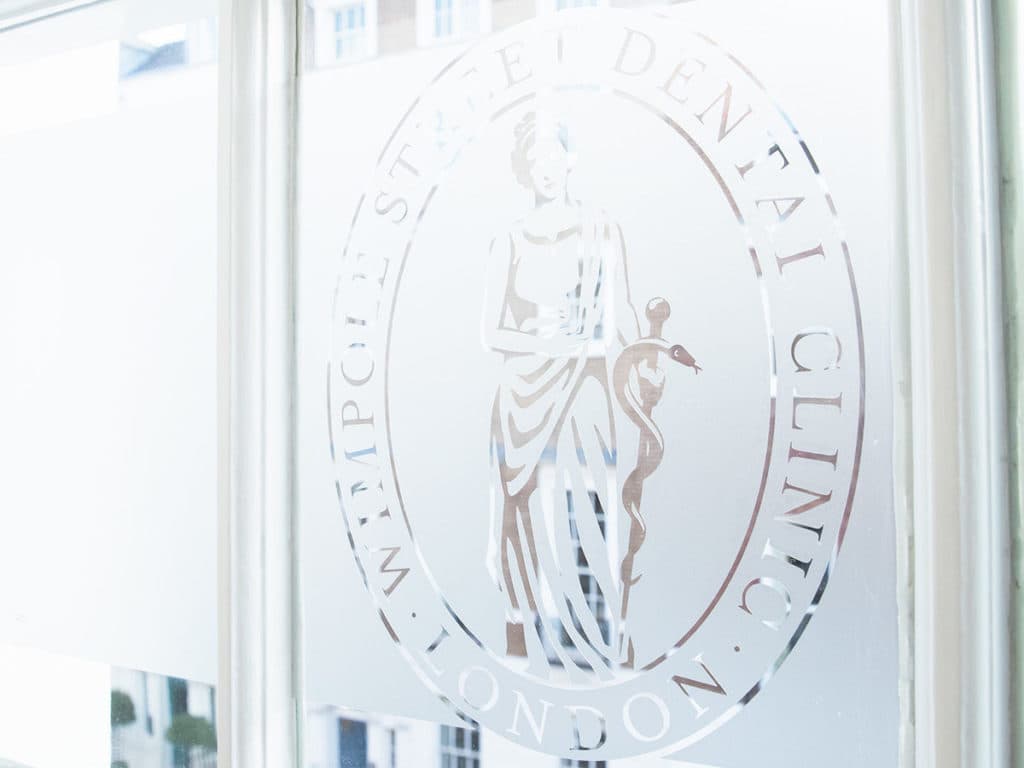


New page design
Written by: Prof Dr Christian Mehl
Medically reviewed by: Dr Raul Costa
Author biography added
Written by: Prof Dr Christian Mehl
Medically reviewed by: Dr Raul Costa
Original content created
Written by: Prof Dr Christian Mehl
Medically reviewed by: Dr Raul Costa
Wimpole St Dental Clinic has strict sourcing guidelines and relies on peer-reviewed studies, academic research institutions, and medical associations. We avoid using tertiary references. You can learn more about how we ensure our content is accurate and current by reading our editorial policy.
- Antonelli JR, Cooper H. Simple apicoectomy. Gen Dent. 1993 Jan-Feb;41(1):33-6. PMID: 7489859.
- Schoeffel GJ. Apicoectomy and retroseal procedures for anterior teeth. Dent Clin North Am. 1994 Apr;38(2):301-24. PMID: 8206179.
- Tavares WLF, Fonseca FO, Maia LM, de Carvalho Machado V, França Alves Silva NR, Junior GM, Ribeiro Sobrinho AP. 3D Apicoectomy Guidance: Optimizing Access for Apicoectomies. J Oral Maxillofac Surg. 2020 Mar;78(3):357.e1-357.e8. doi: 10.1016/j.joms.2019.10.009. Epub 2019 Oct 25. PMID: 31743656.
- van der Meer WJ, Stegenga B. Endodontische herbehandeling of chirurgische apicale endodontie? [Root canal retreatment or surgical apicoectomy?]. Ned Tijdschr Tandheelkd. 2004 Nov;111(11):430-4. Dutch. PMID: 15626130.




















